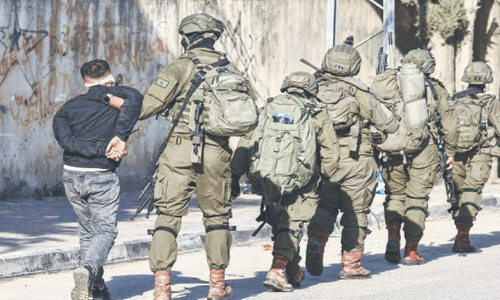ISLAMABAD, Feb 1: The Human Rights Watch has accused the government of having failed to act against abuses committed by security and intelligence agencies which are letting extremist groups to attack religious minorities.
“The authorities did little to address attacks against journalists and human rights defenders, and committed serious abuses in counter-terrorism operations,” the HRW said in a report.
Pakistan had a turbulent year in 2012, with the judicial ouster of Yousuf Raza Gilani from the premiership, attacks on civilians by militant groups, growing electricity shortages, rising food and fuel prices, and “continuing political dominance by the military, which operates with almost complete impunity”.
The religious minorities continued to face insecurity and persecution and the government failed to provide protection to them or to hold extremists accountable.
“Pakistan’s human rights crisis worsened markedly in 2012 with religious minorities bearing the brunt of killings and repression,” said Ali Dayan Hasan, Pakistan Director of Human Rights Watch.
“While the military continued to perpetrate abuses with impunity in Balochistan and beyond, Sunni extremists killed hundreds of Shia Muslims and the Taliban attacked schools, students, and teachers.”
The report documents a sharp escalation in persecution of religious minorities in 2012. At least eight journalists were killed in Pakistan in 2012, four of them in May alone. No-one was held accountable in any of these cases. Media coverage of alleged abuses by state security forces and militant groups was impeded by a climate of fear, the HRW said.
Journalists rarely reported on human rights abuses by the military in counter-terrorism operations, and the Taliban and other armed groups regularly threatened media outlets.
The HRW recorded continued enforced disappearances and killings of Baloch nationalists and militants by the military and its affiliated agencies.
Baloch nationalists and other militant groups also stepped up attacks on non-Baloch civilians.
The government was unable or unwilling to break the links of military and intelligence agencies with extremist groups. Sunni militant groups, including those with known links to the Pakistani military, its intelligence agencies, and affiliated paramilitaries, such as the `banned’ Lashkar-i-Jhangvi operated openly across Pakistan, as law-enforcement officials turned a blind eye to attacks. The government took no significant action to protect those under threat or to hold extremists accountable. Suicide bombings, armed attacks, and killings by the Taliban, Al Qaeda and their affiliates continued in 2012, targeting politicians, journalists, religious minorities, and government security personnel. Militant groups attacked more than 100 schools in 2012, including students, teachers, and human rights advocates. The Taliban’s nearly fatal attack on Malala Yousufzai garnered condemnation from across the world and the political spectrum in Pakistan.
The deadly attacks on minority groups show no sign of letting up in 2013.
The governor’s rule was imposed in Balochistan after a four-day sit-in by Shia Hazara protesters who refused to bury their dead until government action was taken.
“The Shia community suffered bloody attacks in 2012, and then 2013 began with the single worst atrocity against the Hazara Shias in Pakistan’s history,” Hasan said.
“The government needs to show some backbone and act urgently to protect vulnerable communities such as the Hazaras, or risk appearing indifferent or even complicit in the mass killing of its own citizens.”
The HRW urged the federal and provincial governments to promptly apprehend and prosecute those responsible for attacks on members of the Shia community and others at risk.
The government should direct civilian agencies and the military responsible for security to actively protect those facing attack from extremist groups, and to address the growing perception, particularly in Balochistan and tribal areas, that state authorities look the other way when members of the Shia community are attacked.

































